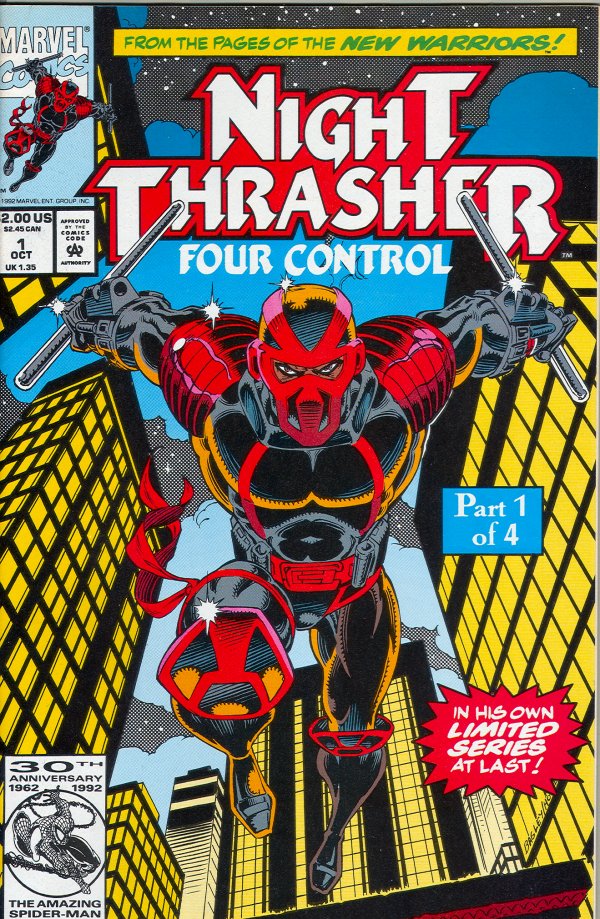At my previous copyediting job, publishers and editors would sometimes lament a current (or perhaps enduring) trend: Compound words are continually being replaced with a one-word amalgam. Dictionary.com offers the following explanation:
"The trend in English is for frequently used word combinations to 'grow together' from two words to one, sometimes passing through a hyphenated stage. The two-word phrase 'data base,' for example, is now most commonly written as one word: 'database.'" (http://dictionary.reference.com/help/faq/language/g22.html)
This appears alarming in part thanks to George Orwell's _1984_, in which havoc is wreaked in part because of the condensation of English words into a limited and difficult vocabulary. The Party created ridiculous-seeming constructions like _doubleplusungood_ to limit possible uses of language, thereby stifling dissent.
My first (and obviously not my best) thought was that the URL was a corroborater in this Orwellian trend. For some reason you can't put spaces in a url, so I figured that this spaceless block of information was responsible for the continued condensation of our compounds.
Not so; people have been making word mashups before either the Internet _or MTV_ existed. In the age of Old English, people would take concepts from foreign languages like Latin and enunciate them as one word that had formerly been two:
"The words that Old English borrowed in this period are only a partial indication of the extent to which the introduction of Christianity affected the lives and thoughts of the English people. The English did not always adopt a foreign word to express a new concept. [. . .] _Patriarch_ was rendered literally by _heahfæder*_ (high father) [. . .]. For _baptize (L. _baptizare*_) the English adapted a native word _fullian_ (to consecrate) while its derivative _fulluht_ renders the noun _baptism_." (Albert C. Baugh, and Thomas Cable. _A History of the English Language._ Fifth Edition. Prentice Hall: Upper Saddle River, NJ, 2002. 90.)
Baugh and Cable then list the following word connections.
fulluhtbæ[th]** (font)
fulwere (baptist)
fulluht-faeder (baptizer)
fulluht-had* (baptismal vow)
fulluht-nama (Christian name)
fulluht-stow* (baptistry
fulluht-tid* (baptism time) [Like Skating Time!*** I wish the link button were here! Youtube vid coming soon] (90).
The concept of shooting words together to create new ones is not new or even particular to English (cf., for example, Chinese _mei guo_* [_America/"beautiful land"_]). What creates anxiety for me, though, is that we feel the need to eliminate spaces in between words. Maybe we do this to trick ourselves into thinking we've created a new morphological unit where really very little has changed. At the very least, collapsing words is an unnecessary inconvenience for copyeditors.
But maybe it gets worse. At the publishing house, the big headache had to do with policymakers, which has recently entered the lexicon (formerly policy makers, like database/data base). The ostensible justification for this is that policymakers (people who somehow by definition make decisions) are different from policy makers (people who just sometimes happen to make decisions). By this rule, rhyme sayers become rhymesayers, snow beasts become snowbeasts, baked-goods makers become bakedgoodsmakers, and we get a bunch of whole new words, by virtue of eliminating the space. We also get a whole new kind of people--those who were destined to become doers of the various tasks their names indicate.
This is the kind of thing Orwell was worried about; when class or politics comes into play, the use of language becomes much more important. Feminists had something to say about _congressman_, and pretty soon we had political correctness as a bandage to put over these psychological barriers created by language. I'm skeptical that anything changes in the space between policy makers and policymakers, so the creation of these new words looks a lot like a falsehood perpetrated by hegemons. Because not much changes in terms of denotation when we get rid of the space, though, I'm also not sure that putting the space back in will serve to counter the political effects of language collapse. Politically correct language failed for similar reasons.
However, an interesting thing happens if we reverse compound-word creation. It is possible to create word phrases that convey new meanings by separating existing compound words into their possible (though nonlegitimated) morphemes. Witness Jay-Z, who was on the right track on the Diamonds Remix f. Kanye West. (Although the actual track listing shows Jay-Z featured, careful listeners really know who was featuring whom.) Jay doesn't exactly follow the scheme I've outlined in this paragraph, but he does transcend the trend and electrify listeners by cutting _businessman_ into pieces:
"I'm not a _businessman;_ I'm a _business,_ _man_!"
It gets even crazier when puns are introduced. Other possibilities, of the top of my head:
Trans former (former of transexuals, from _transformer_ =robot in disguise)
Cross dresser (Jesus Christ [wearer of crosses], from _crossdresser_ =wearer of women's clothing)
Punt er (kick her out [punt+'er], from _punter_ =football kicker in bad situations)
Space bar (watering hole in outer space, from _spacebar_ =the thing you hit to separate words)
I think Urban Dictionary, Juelz Santana, and Young Jeezy have all done a lot of work already in this category, but the possibilities appear endless; we can create new words out of two disparate ones, then separate them at different places to create new phrases. And in the meantime, we get puns, misunderstandings, and end-line rhyme (rapping)!
Subquestionz: Is there a way to prove that there is a finite (or infinite) number of word-combination/separation possibilities, just like the proof that there is an infinite number of prime numbers? Does anyone apply number theory formalization to words to answer such "big questions"?
*I apologize for the lack of accents on OE and other words. I can't figure out how to do em on a mac.
**OE Thorn has been replaced with [th].
***http://sulkynotes.blogspot.com/2006/12/no-joke_27.html



